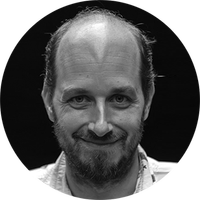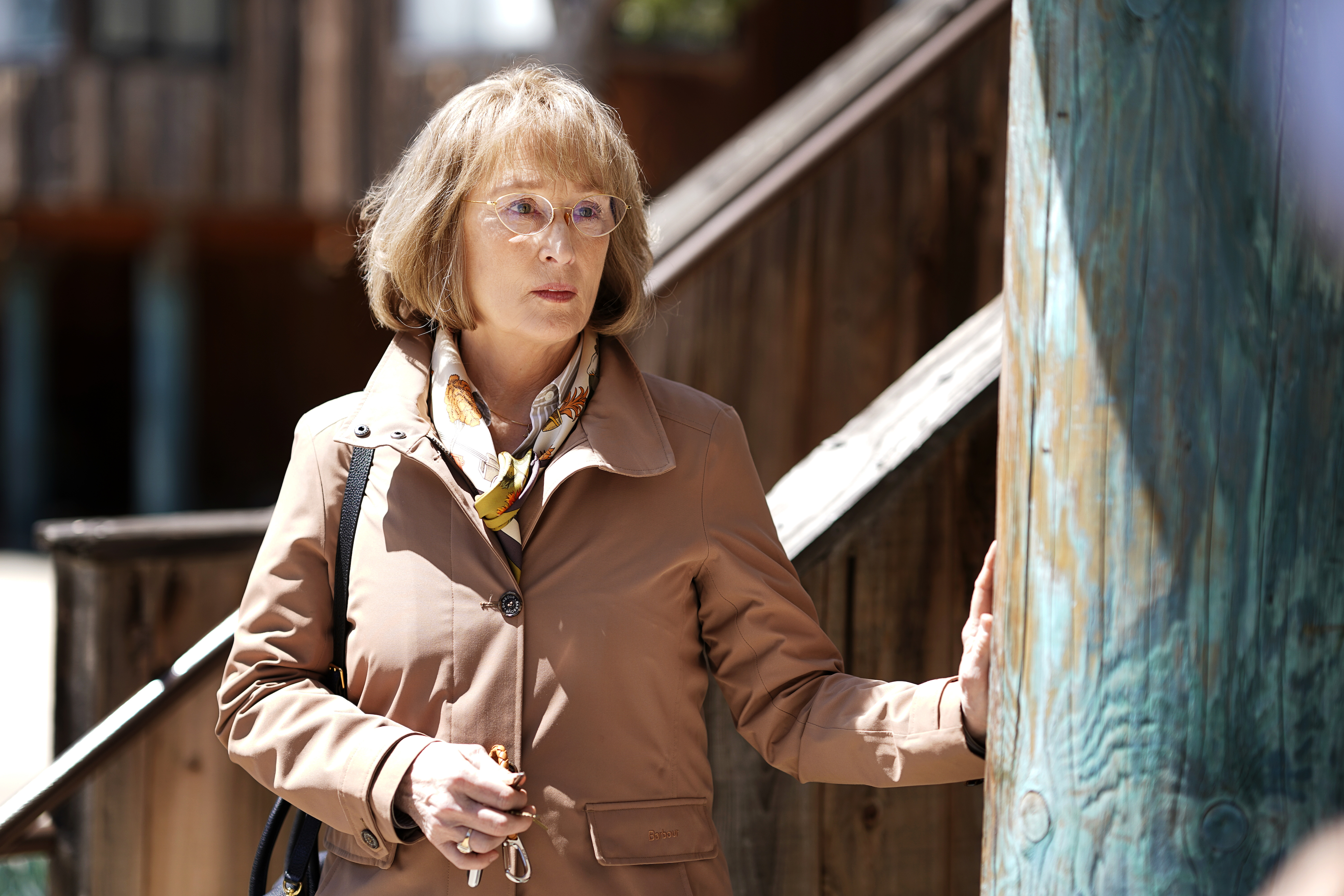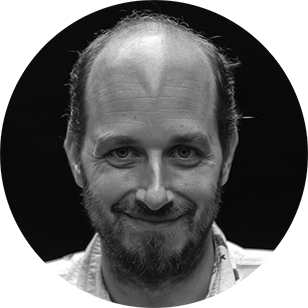How Big Little Lies subverts the murder mystery
Season 2 of the HBO series shows what comes after the case is 'solved'


A free daily email with the biggest news stories of the day – and the best features from TheWeek.com
You are now subscribed
Your newsletter sign-up was successful
One reason a "whodunnit" can be so satisfying is that learning who did it can feel like it fixes whatever was done. Mysteries tend to have messy beginnings and confusing middles — and to go down any number of random tangents and side stories (this messiness being one of the other major pleasures of the genre) — but a neat and tidy conclusion can retroactively clean it all up. Case closed! A crime was committed, but justice has been done; a solved mystery is a happy ending.
This satisfaction might come apart if the story were to continue after the ending, of course. Apprehending a murderer won't bring the victim back, and life goes on and grief continues, forever. And since this feeling that we've had a happy ending if we've "solved" the mystery is, partially, a product of the point at which the story stops being told, the most interesting thing about David E. Kelley's HBO adaptation of Big Little Lies is that it has a second season, that the story continues past the mystery's solution. Though it was initially billed as a "miniseries" in 2017 — its seven episodes retold the story of Liane Moriarty's 2014 novel — the show returned in 2019, picking up in the aftermath, as life goes on. But in place of a new mystery to be solved, it instead introduces Mary Louise — played magnificently by Meryl Streep — as a kind of vengeful Miss Marple, an ominous Jessica Fletcher who picks at tied-off threads and asks questions everyone else wants to be forgotten. By introducing a detective into an already-solved mystery, the show subverts the genre itself, eating away at the happy ending "solution" with the gnawing hunger of a grief that will not be satisfied.
The novel ended more conclusively, with a clear confession. Having been the child of an abusive relationship, Bonnie — played in the show by Zoë Kravitz — explains that she lashed out when she saw Perry striking his wife, Celeste (Bonnie's husband explains that she was once diagnosed with post-traumatic stress). The other main characters initially try to cover for her — as they do in the show — but in the novel, she eventually decides to come clean and turns herself into the police. Her refusal to lie is the key thing. As she explains, she was complicit as a child in all the "little" lies created by abuse (and which enable it to continue), but as an adult, she needs to bring the lies to an end:
The Week
Escape your echo chamber. Get the facts behind the news, plus analysis from multiple perspectives.

Sign up for The Week's Free Newsletters
From our morning news briefing to a weekly Good News Newsletter, get the best of The Week delivered directly to your inbox.
From our morning news briefing to a weekly Good News Newsletter, get the best of The Week delivered directly to your inbox.
"I'm a good liar. When I was growing up I lied all the time. To the police. To social workers. I had to keep big secrets. I remembered the last time I saw my father hit my mother. I was 20. A grown-up. I'd gone home for a visit, and it started. Mum did something. I don't remember what. She didn't put enough tomato sauce on his plate. She laughed the wrong way."Bonnie looked directly at Celeste. "You know."
At this point in the novel, of course, the reader also knows. It might have initially seemed like you were reading a classic whodunnit — especially since the novel keeps you in suspense as to who killed who until the very end — but you've gradually come to realize that domestic abuse is the crime that's been exposed. The real mystery turns out to be how such abuse hides in plain sight, how it builds a house of lies (and self-deception) that enables it to continue, even across generations. And so, while the "murder" the police are investigating turns out to be nothing of the sort — being half accident, half righteous vengeance — the resolution at the end of the novel will be Bonnie's refusal to lie.
Big Little Lies is an excellent novel — cleverly constructed and suspenseful — and the show's first season adapts it well. But the novel still participates in the genre's conceit that mysteries can be solved, that cases close. The show is interested in something messier: because Bonnie's confession is so essentially satisfying — and the injunction not to lie provides a kind of moral lesson for the reader — it gets excluded from the end of season one, and we never really find out why Bonnie pushed him. In the show, no one confesses and the authorities never find out what happened; the mystery remains unsolved. Instead, the season ends with the quartet of women at the beach, wordlessly together as their children play.
Until, that is, in season two, like an avenging angel of dissatisfaction, Streep's Mary Louise arrives to solve a mystery that no one wants her to solve. In fact, she wants to un-solve it: she wants to discover that her son was not, in fact, a rapist and a philanderer; she wants to learn that, somehow, he was still a good man. For readers of Agatha Christie or fans of Murder, She Wrote, the inversion can be disorienting: somehow we — or, rather, the characters we've come to identify with — have become the conspirators hiding a secret from a mild and terrifying snoop; as she "I don't mean to pry, but"s and "don't get me wrong"s her way towards the truth of what happened at Trivia Night, it feels like the police closing in.
Nothing expresses the creeping feeling that the story is unravelling better than Madeline's unspooling monologue at the school's "ad hoc Golden Bell award-winning assembly," in the season's third episode. After parental complaints that the school's children have been told about the existence of climate change — rather than sheltered from this reality, as the parents demand — Madeline takes the podium and delivers a gloriously unsettling speech that rambles from a half-garbled memory of "The Rainbow Connection" to a descent into grief-stricken incoherence, as the audience stares in increasingly wide-eyed confusion and concern. But somewhere in the middle of it all, she blurts out the truth of the real-life mystery genre, that happy endings are a lie:
A free daily email with the biggest news stories of the day – and the best features from TheWeek.com
"We lie to our kids! We fill their heads full of Santa Claus and stories with happy endings when most of us know that most endings to most stories fucking suck. Right? Let's just get real. There aren't a lot of happy endings for a lot of people, you know? We fill their heads full of happy endings and happy stories and lies. And we tell them things like ‘you're fine, you're gonna be fine' and we tell ourselves—we tell ourselves we're gonna be fine. But we're not."
If mysteries work like puzzles to be solved, then Big Little Lies is taking the mystery into a much darker place, where death doesn't have a solution and where abuse and infidelity are about as easy to undo as global warming. To act like such a story has a solution, or a resolution, is to misunderstand the seriousness of the problem. And while we don't yet know what the delightfully creepy Mary Louise has in store for our protagonists — though her vengeful denialism makes her a wonderful villain in an episode that dances around the climate crisis — it seems clear that the story is escalating out of control as fast as Madeline's monologue.
Aaron Bady is a founding editor at Popula. He was an editor at The New Inquiry and his writing has appeared in The New Yorker, The New Republic, The Nation, Pacific Standard, The Los Angeles Review of Books, and elsewhere. He lives in Oakland, California.
-
 El Paso airspace closure tied to FAA-Pentagon standoff
El Paso airspace closure tied to FAA-Pentagon standoffSpeed Read The closure in the Texas border city stemmed from disagreements between the Federal Aviation Administration and Pentagon officials over drone-related tests
-
 Political cartoons for February 12
Political cartoons for February 12Cartoons Thursday's political cartoons include a Pam Bondi performance, Ghislaine Maxwell on tour, and ICE detention facilities
-
 Arcadia: Tom Stoppard’s ‘masterpiece’ makes a ‘triumphant’ return
Arcadia: Tom Stoppard’s ‘masterpiece’ makes a ‘triumphant’ returnThe Week Recommends Carrie Cracknell’s revival at the Old Vic ‘grips like a thriller’
